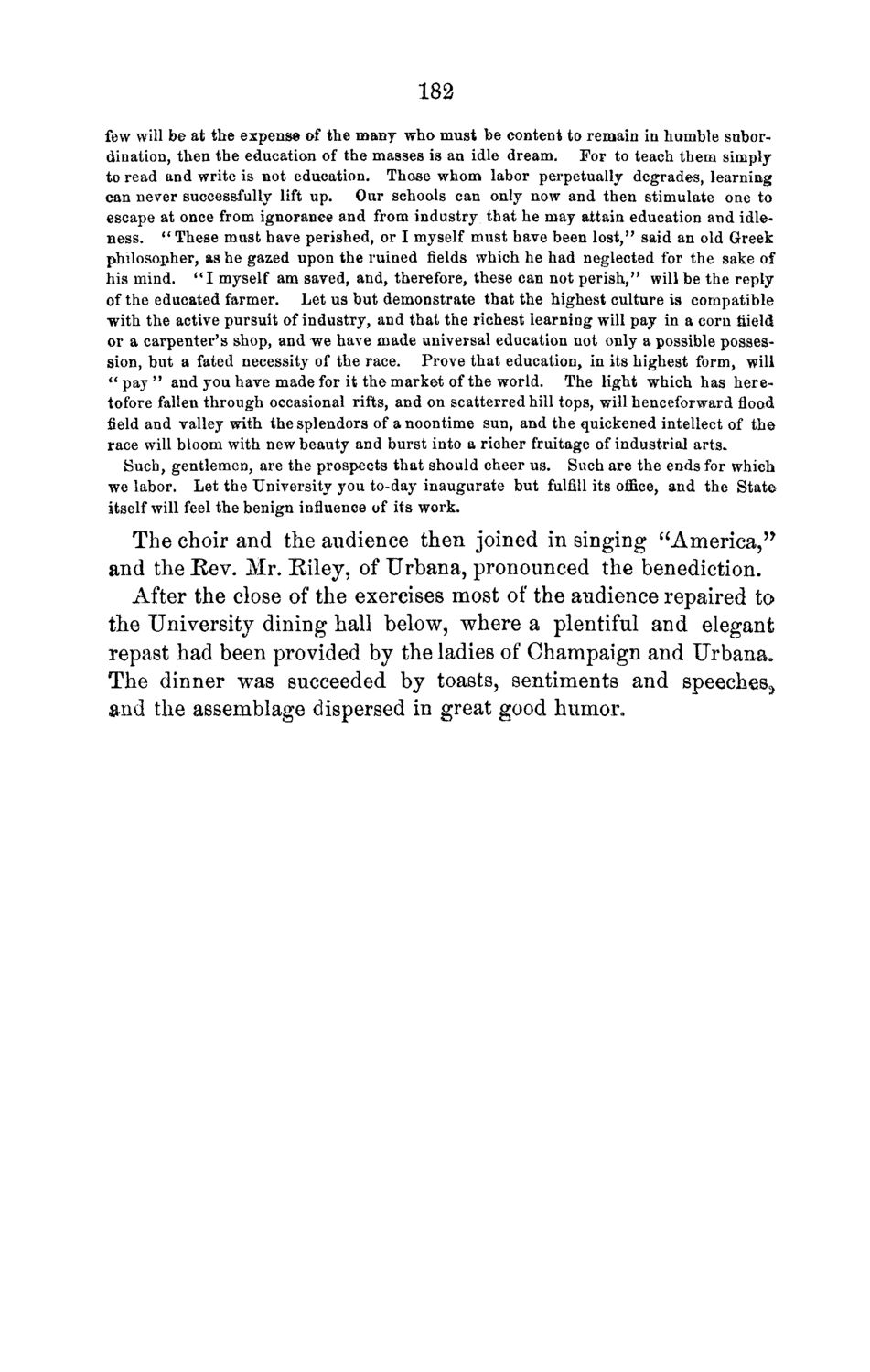| |
| |
Caption: Board of Trustees Minutes - 1868
This is a reduced-resolution page image for fast online browsing.

EXTRACTED TEXT FROM PAGE:
182 few will be at the expense of the many who must be content to remain in humble subordination, then the education of the masses is an idle dream. For to teach them simply to read and write is not education. Those whom labor perpetually degrades, learning can never successfully lift up. Our schools can only now and then stimulate one to escape at once from ignorance and from industry that he may attain education and idleness. " These must have perished, or I myself must have been lost," said an old Greek philosopher, as he gaz.ed upon the ruined fields which he had neglected for the sake of his mind. " I myself am saved, and, therefore, these can not perish," will be the reply of the educated farmer. Let us but demonstrate that the highest culture is compatible with the active pursuit of industry, and that the richest learning will pay in a corn fiield or a carpenter's shop, and we have made universal education not only a possible possession, but a fated necessity of the race. Prove that education, in its highest form, will " pay " and you have made for it the market of the world. The light which has heretofore fallen through occasional rifts, and on scatterred hill tops, will henceforward flood field and valley with the splendors of a noontime sun, and the quickened intellect of the race will bloom with new beauty and burst into a richer fruitage of industrial arts. Such, gentlemen, are the prospects that should cheer us. Such are the ends for which we labor. Let the University you to-day inaugurate but fulfill its office, and the State itself will feel the benign influence of its work. The choir and the audience then joined in singing "America," and the Eev. Mr. Riley, of Urbana, pronounced the benediction. After the close of the exercises most of the audience repaired to the University dining hall below, where a plentiful and elegant repast had been provided by the ladies of Champaign and Urbana. The dinner was succeeded by toasts, sentiments and speeches^ and the assemblage dispersed in great good humor.
| |